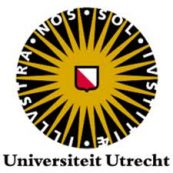Academic Philosophy Events in the Netherlands
All events in academic philosophy

- This event has passed.
PhD Defense “Between Experts and Locals: Towards an inclusive framework for a development agenda” (Morten Byskov)
28 October 2016 @ 10:30 - 11:45

PhD defense Morten Byskov about three fundamental questions when setting a development agenda
Local stakeholders should have a larger role in setting out the goals that should be pursued as a matter of development policy. Morten Fibieger Byskov (Ethics) argues that we need to ask three fundamental questions when setting a development agenda.
What kind of goals should a development agenda include
In the first part of the thesis Byskov argues that development goals are best conceptualised in terms of capabilities and functionings. Conceptualising development goals in terms of capabilities and functionings implies a focus on what people can do or be with their means and resources. The reason for this is that a focus on the means to development ignores the fact that people are subject to various factors that influence the extent to which they are able to successfully convert resources, goods and freedoms into actual opportunities or realised doings and beings (i.e. capabilities and functionings).
Who should be involved in setting a development agenda
The second question that Byskov investigates concerns who should select the relevant development goals for a development agenda? He argues that local stakeholders should be granted two kinds of authority in the context of development, namely political authority and expert authority. On the one hand, he grounds this claim to political authority in republican theory and argues that it should be understood as the claim that local stakeholders should not be subject to domination, defined as the arbitrary exercise of power, in the political process of setting a development agenda, neither from national policy-makers, external stakeholders, nor fellow citizens.
On the other hand, before a development agenda becomes a matter of policy-making it is a socioscientific issue. At the socioscientific level, it is a question of who can claim expert authority on matters of development. Byskov argues that we should adopt a third wave view of development expertise, which recognises that members of the general public who possess relevant tacit, embodied, or explicit knowledge should be granted expert authority on par with traditional development scholars.
How should they proceed?
Finally, in the third part of the thesis, Byskov asks by which method we should select normatively relevant capabilities and functionings. He argues that we should adopt a multi-stage method, which aims to engage critically with local stakeholders in a three-stage procedure. While the purpose of the first stage is to enrich the normative and descriptive theory through empirical and deliberative exercises, the second stage offers this refined theory as an input to a democratic procedure with the aim of enhancing the informational bases of the participants. Lastly, in the third stage, local stakeholders engage in a critical deliberation facilitated by mediators who can help the various stakeholders to understand each other and express their arguments in an intelligible way, with the ideal outcome of an informed and widely endorsed list of capabilities and functionings.
28 October 2016 10:30
28 October 2016 11:45
Morten Byskov
Between Experts and Locals: Towards an inclusive framework for a development agenda
Prof. dr. I.A.M. Robeyns
Prof.dr. H.H.A. van den Brink
http://www.uu.nl/en/events/phd-defense-morten-byskov-about-three-fundamental-questions-when-setting-a-development-agenda
About the OZSW event calendar
The OZSW event calendar lists academic philosophy events organized by/at Dutch universities, and is offered by the OZSW as a service to the research community. Please check the event in question – through their website or organizer – to find out if you could participate and whether registration is required. Obviously we carry no responsibility for non-OZSW events.